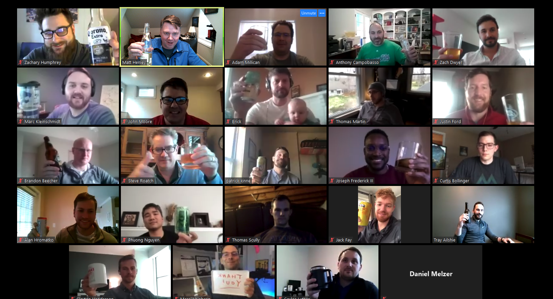
When I hear somebody say “unprecedented,” the most overused word of the coronavirus era, I think of Samuel L. Jackson’s character in “Pulp Fiction,” daring his unfortunate victim to “Say what [unprecedented] again!”
Sure, the specifics of this coronavirus pandemic are unique. But we’ve seen recessions, depressions, national emergencies, wars, and even pandemics before. The good news is that in each of these events, when the crisis abated, the economy came roaring back stronger than before. The key is to weather the storm now so we can thrive in the sunny days sure to come.
Weathering a recession is certainly not unprecedented for 27Global. In fact, we started in a recession. 2008 was a challenging year to launch a new business. 2009 was an even more challenging year to grow one, but we buckled down and survived. Twelve years later, we’re still here—and we’re thriving.
While preparing contingency plans to ride out the current storm, I reflected on the lessons we learned as a business during the Great Recession. We’re applying those same lessons today, amid the COVID-19 outbreak, and you should, too.
Lesson 1: Know your market
In his 2002 book, “A Good Hard Kick in the Ass,” serial entrepreneur and venture capitalist, Rob Adams, emphasized the importance of market validation. According to Adams, market validation means testing your idea with 50 to 100 real and potential clients. This, along with designing a solid business model and hiring a great team, is part of the hard work required to turn a great idea into a successful business.
Fortunately, by the time the recession hit, we had done our homework. We knew that our business model—blending deep onshore consulting expertise with top offshore programmer talent—solved a problem our clients had in the sourcing of software services. The recession created a new problem: the same clients and prospects who validated our business model were locking down budgets to survive the recession. We broadened our target market.
When 27Global lost our first two – and only – clients in 2009, we expanded our focus from small-to-mid-sized businesses to well-funded startups. Layoffs and failures in large businesses created the opportunity for new entrepreneurs to pursue their dreams. They also had a problem sourcing software services. Not only did our startup clients supply 100% of our revenue in 2009, but we were also able to prove out our onshore-offshore business model and build credible examples of our work to show new clients. We still love startups, but since then we’ve gotten back to our original focus of serving small-to-medium (and even some large) businesses.
In our case, knowing our market told us that the services we provided were the right ones, but the target market needed adjustment. In other cases, companies may find their services need to be adjusted but their market is still on target. The key is continual market validation. Listen to your customers. They will tell you what they need.
Lesson 2: Plan—and keep planning
Mike Tyson famously noted that “everyone has a plan until they get punched in the mouth.”

The COVID-19 crisis counts as a punch in the mouth, as did the Great Recession. At 27Global, we decided failure was not an option. And I mean NOT an option. The only way you can boldly and believably declare you will not fail is to have faithfully executed Lesson 1.
Such a stubborn belief in your ability to succeed (tenacity?) will open your mind to creative solutions you may not have considered otherwise. In 2008 when our plans were disrupted, we refused to fail. Instead, we developed contingency plans. We’re again focused on contingency planning, working through “what if” scenarios such as:
- What if a client with a major contract has to cancel? What if an employee gets sick? Solution: cross-train our consultants on each other’s clients so they can support other projects or step in for a colleague.
- What if our offshore team in Vietnam has to work from home? Solution: implement business continuity plans, including the use of VPNs we had them put in place months ago.
- What about that office expansion that just a month ago seemed urgent? Looks like we work from home pretty effectively—let’s get to the other side and reassess how much space we need.
- What if our cash flow takes a hit? Then we double down on our efforts to bring our receivables current, precisely calculate cash requirements, ensure lines of credit are in place and watch discretionary spending.
Just as a slalom skier initiates the turn before reaching the gate, you should start contingency planning in the good times—before a crisis hits. Plans we undertook months and years ago are helping us smoothly navigate the current crisis.
Lesson 3: Communicate
If you asked our employees in January what the word for the year was, they’d tell you “execution.” We were in the midst of a full year of explosive growth and had as much business as we could handle. We stressed “execution” as a battle cry to continue to deliver on the value propositions we had sold. With the uncertainty of the crisis at hand, the new word is “communication.”
When crisis strikes, communication tends to be the first thing to break down. With nearly a third of employees reporting a lack of action from their employers, this is one of the most important times to check with your clients, your business partners, and your team – both early and often.
Taking time to understand the risks to your clients’ businesses allows you to more accurately assess the threats and potential storms that could be in store for your own business. This, in turn, allows you to respond with authenticity to your employees’ concerns.
In addition to making personal calls to each of our clients, we’ve kept our team informed, and when we needed some levity and teambuilding, we hosted a virtual happy hour for the team—something I’m confident we’ll continue as we all adjust to working remotely.

We’ve also made a point of communicating with our suppliers. Paying them on time, reassuring them about our business stability, and committing to provide ample warning for disruptions in our business helps them stay strong and focused. The last thing we need during this crisis is a disruption in our supply chain.
Finally, communicate with your target market. When the Great Recession took both our clients, we had done zero marketing. In hindsight, this was a big mistake. The plan had been to bank a couple of referenceable implementations before making too much noise in the market. We won’t make that mistake again. Now is the time to get the word out. Let your market know you’re there to help in any way you can—now, or when the economy comes roaring back.
No silver bullet
I don’t profess to have the “silver bullet” to guarantee survival during this crisis. I do believe in knowing your market, continually planning and relentlessly communicating. Together with a proven business model and a great team, I’m confident we’ll weather the storm and soon see bluer skies.
We’re here if you want to discuss how to weather the current storm. What does that look like for your business?
Steve Roatch is founder & CEO at 27Global. Founded in 2008, 27Global designs, builds and operates custom software solutions for businesses of all sizes. The perfect pairing of a local leadership with offshore pricing, 27Global has the business acumen to understand your vision and the expertise to build your software solution. To learn more, visit 27global.com or connect with us on LinkedIn and Twitter.



